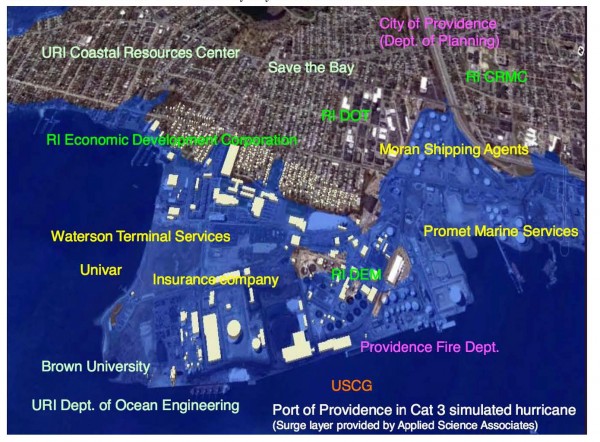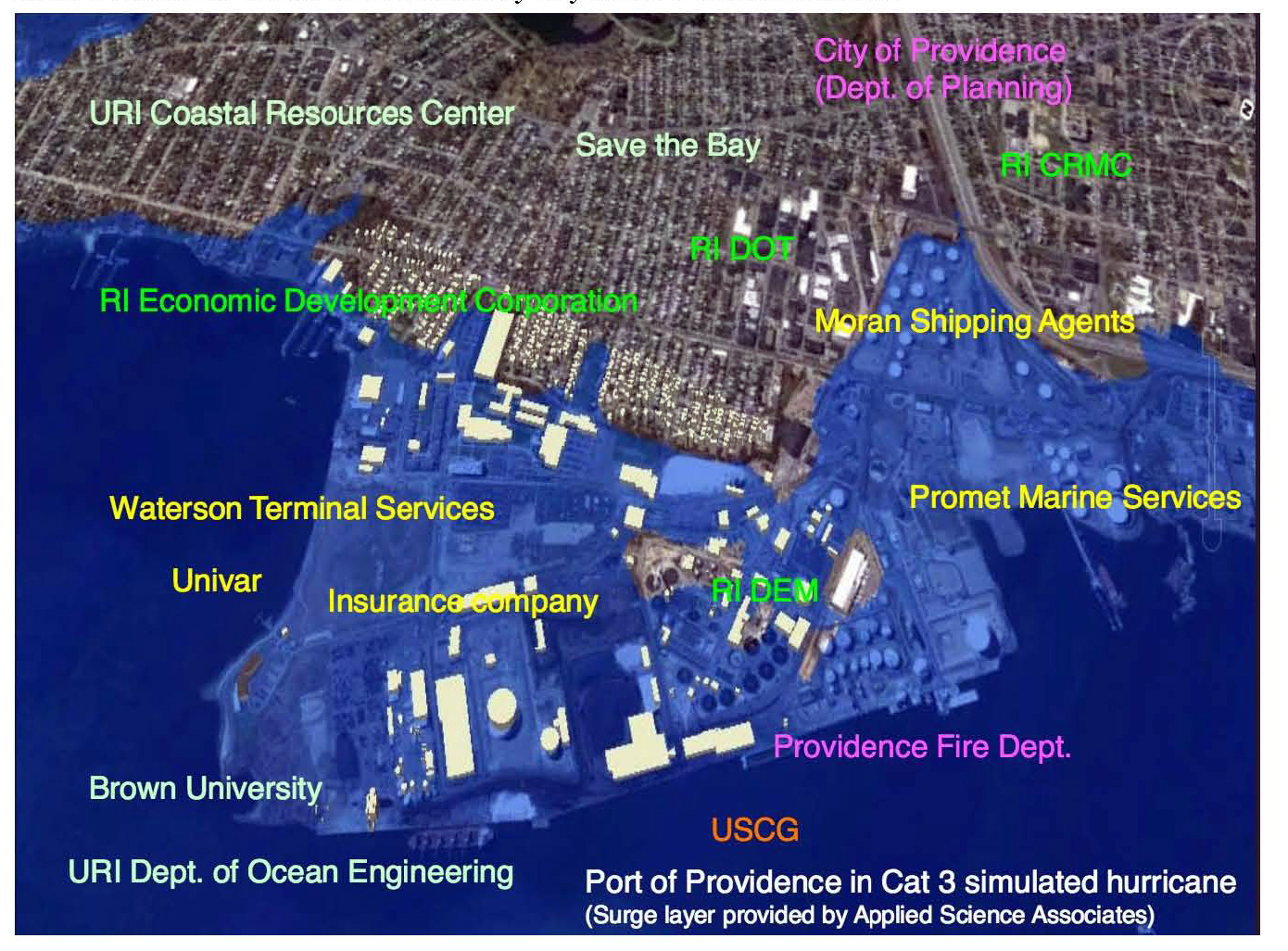The Environmental Justice League of Rhode Island (EJLRI) has created a brilliant position paper, “National Grid’s Liquefied Natural Gas (LNG) Liquefaction Facility: Toxic Hazards in the Port Providence: Proposals for a Just Transition” that eviscerates National Grid‘s plans to build a new liquefaction facility for fracked LNG at Fields Point in South Providence. Over the next few days RI Future will be presenting the EJLRI’s position paper in its entirety.
Climate Change
As a new fossil fuel facility involving methane, a potent greenhouse gas, the Fields Point Liquefaction Facility will create emissions that contribute to climate change. The source of the methane that would be liquefied is the Spectra Energy pipeline, which carries gas produced by hydraulic fracturing (fracking) from the Marcellus Shale into New England. As a result, the emissions and climate change impacts of the fracked gas life cycle must be taken into account, from drilling to consumption. While the oil and gas industry and their supporters like to present “natural” gas as a “cleaner” alternative or a “bridge fuel” towards a renewable future, in reality gas produced by fracking is worse for the climate than coal.
The proposed liquefaction facility is part of a much larger regional strategy to massively expand fracked gas infrastructure across the region, coordinated by the “Access Northeast” project linking Spectra Energy, National Grid, and Eversource Energy. In order to take climate science seriously and hopefully avert devastating runaway climate change, fossil fuel use must be rapidly scaled back not expanded. This is especially true for natural gas, given the much higher potency of methane as a greenhouse gas. Instead of investing in the build out of new fracked gas infrastructure, massive investments need to be made in energy efficiency and truly renewable energy.
National Grid’s proposed facility would contribute to climate change emissions
National Grid will need a compressor station to take the incoming gas from the pipeline and bring it up to the needed pressure for liquefaction. This compressor would be powered by gas from the pipeline, contributing in addition to methane leaks throughout the natural gas pipeline, storage, and delivery system.
Running the liquefaction facility requires a large amount of energy and will use 15 Megawatts of electricity to liquefy the gas. For comparison sake, the Deepwater Wind offshore wind farm project will be generating 30 Megawatts of electricity, which means National Grid’s proposal would essentially cut the benefits of this groundbreaking renewable energy development in half. In general, 98 percent of Rhode Island’s electricity is generated from natural gas.
Climate Adaptation?
In addition to contributing to climate change, the proposed facility and the Port of Providence in general is at high risk from climate related impacts and severe weather events. It, along with the rest of the Port, is at sea level and is at risk from climate change amplified hurricanes as well as from future sea level rise. In both projected scenarios, as well as in other major flood events, the proposed liquefaction facility would be underwater, along with the adjacent facilities storing hazardous, flammable and/or explosive substances. National Grid claims the facility will be built to withstand a 500 year flood yet it also claims to have done outreach with community organizations that have never existed, which brings their trustworthiness into doubt. In recent years, multiple 1000 year floods have occurred, supercharged by the overheated climate. While it may be poetic justice or karmic effect to have the major producers of climate change emissions be impacted by the effects of climate change, once again it would be the neighboring front-line communities that would be hurt most by any climate related disaster.

See also:
● Flawed Proposal: Background info on National Grid’s unnecessary project
● Potential Disasters: dangerous facility in a high risk area
● Environmental Racism: ongoing and underlying environmental justice issues
● Climate Change: it causes climate change and is at risk from climate impacts
● Public Health: health disparities and impacts on health care institutions
● Economic Inequality: high cost project that will cause economic damage
● Alternatives and Solutions: Strategies for Climate Justice & a Just Transition


Deprecated: Function get_magic_quotes_gpc() is deprecated in /hermes/bosnacweb08/bosnacweb08bf/b1577/ipg.rifuturecom/RIFutureNew/wp-includes/formatting.php on line 4387
Deprecated: Function get_magic_quotes_gpc() is deprecated in /hermes/bosnacweb08/bosnacweb08bf/b1577/ipg.rifuturecom/RIFutureNew/wp-includes/formatting.php on line 4387
Deprecated: Function get_magic_quotes_gpc() is deprecated in /hermes/bosnacweb08/bosnacweb08bf/b1577/ipg.rifuturecom/RIFutureNew/wp-includes/formatting.php on line 4387